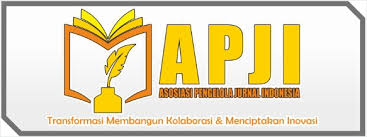Strengthening Village Economies Through Cooperative Business Model Training
DOI:
https://doi.org/10.70610/iare.v3i1.809Keywords:
Capacity Building, Cooperative Business Models, Rural Development, Sustainable Economic GrowthAbstract
This community service initiative aimed to strengthen rural economies by introducing and empowering local communities to adopt cooperative business models. Limited economic opportunities and fragmented individualistic approaches hinder sustainable development in many rural areas. This project sought to address these challenges by providing training on cooperative principles, governance, and practical business strategies. The method employed Participatory Rural Appraisal (PRA), engaging local participants in identifying community resources, challenges, and potential cooperative opportunities. Over three months, participants attended interactive workshops, field visits, and group discussions, leading to an increased understanding of cooperatives. The results demonstrated significant improvement in participants' knowledge, with a marked shift in mindset from individualistic to collective economic action. Several groups also began drafting cooperative bylaws and sought legal recognition for their ventures. While the initiative was successful, it highlighted the need for continuous support and follow-up to ensure long-term sustainability. The project contributes to rural development by demonstrating the potential of cooperatives as a tool for inclusive economic growth, emphasizing the importance of local ownership and community-driven solutions. Future initiatives should incorporate ongoing mentorship and involve local leaders more deeply in the facilitation process to ensure lasting impact.
References
H. A. Al-Ababneh, “Researching Global Digital E-Marketing Trends,” Eastern-European J. Enterp. Technol., vol. 1, no. 13–115, pp. 26–38, 2022, doi: 10.15587/1729-4061.2022.252276.
A. A. Okunade and A. R. Osmani, “Effects of life expectancy on economic growth: new results using the flexible Box–Cox power transformation model,” Appl. Econ. Lett., vol. 27, no. 20, pp. 1681–1684, 2020, doi: 10.1080/13504851.2020.1713976.
Q. Wang and M. Su, “Drivers of decoupling economic growth from carbon emission–an empirical analysis of 192 countries using decoupling model and decomposition method,” Environ. Impact Assess. Rev., vol. 81, p. 106356, 2020.
N. Miliyanti, R. Rinaldy, and R. Alghifari, “Application of Participatory Rural Appraisal (PRA) Techniques in Waste Problems in Sukamanis Village Kadudampit District,” J. Pengabdi. Masy. Bestari, vol. 1, no. 9, 2022, doi: 10.55927/jpmb.v1i9.2111.
E. R. Goffi, L. Colin, and S. Belouali, “Ethical Assessment of AI Cannot Ignore Cultural Pluralism: A Call for Broader Perspective on AI Ethic,” Arribat-International J. Hum. Rights Publ. by CNDH Morocco, vol. 1, no. 2, pp. 151–175, 2021.
R. A. Putrie, A. Asfahani, R. Harati, and R. A. P. K. Dewi, “COMMUNITY ASSISTANCE IN COMMUNICATION SKILLS DEVELOPMENT TRAINING PROGRAMS,” Community Dev. J. J. Pengabdi. Masy., vol. 5, no. 3, pp. 4848–4856, 2024.
W. Ainis Rohtih, S. Saifuddin Hamzah, and L. Sakdiyah, “Enhancing Womenpreneurs’ Digital Marketing Skills in Purutrejo Village, Purworejo District, Pasuruan,” Engagem. J. Pengabdi. Kpd. Masy., vol. 7, no. 2, pp. 534–550, 2023, doi: 10.29062/engagement.v7i2.1547.
Y. Hasanah, “Eco enzyme and its benefits for organic rice production and disinfectant,” J. Saintech Transf., vol. 3, no. 2, pp. 119–128, 2021, doi: 10.32734/jst.v3i2.4519.
F. Reggina and E. Indriani, “Psychological Education in Overcoming Trauma Due to Natural Disasters,” Socio-Economic Humanist. Asp. Townsh. Ind., vol. 1, no. 2, pp. 160–165, 2023.
D. Dandi and M. Veronica, “Educational Psychology, Subjective Narratives of Consequences of Games Performance,” Socio-Economic Humanist. Asp. Townsh. Ind., vol. 1, no. 2, pp. 138–144, 2023.
M. L. Mogale and K. S. Malatji, “Progressed Learners’ Participation in Developing Curriculum Support Programmes: A Critical Pedagogy Approach,” E-Journal Humanit. Arts Soc. Sci., no. October, pp. 475–487, 2022, doi: 10.38159/ehass.20223105.
Roberto Crotti & Tiffany Misrahi, “The Travel and Tourism Competitiveness Report,” Geneva, 2017.
S. Anwar, “Student Services Center (SSC): Upaya pembinaan prestasi, karir, dan kewirausahaan bagi mahasiswa melalui community based participatory research,” Penamas J. Community Serv., vol. 1, no. 1, pp. 49–60, 2021.
S. Rahmelia, O. Haloho, F. D. Pongoh, and B. Purwantoro, “Building an Environment That Motivates Education Sustainability in Tumbang Habaon Village, Gunung Mas, Central Kalimantan Province, During Pandemic through Participatory Action Research between Parents, Schools and Church,” Engagem. J. Pengabdi. Kpd. Masy., vol. 6, no. 1, pp. 204–220, 2022.
F. T. Lyman, L. Tredway, and M. Purser, “Think-Pair-Share and ThinkTrix: Standard Bearers of Student Dialogue,” in Contemporary Global Perspectives on Cooperative Learning: Applications Across Educational Contexts, 2023. doi: 10.4324/9781003268192-12.
D. A. Bray, D. C. Girvan, and E. N. Chorcora, “Students’ perceptions of pedagogy for 21st century learning instrument (S-POP-21): Concept, validation, and initial results,” Think. Ski. Creat., vol. 49, pp. 1–14, 2023, doi: 10.1016/j.tsc.2023.101319.
L. Stephenson, “Collective creativity and wellbeing dispositions: Children’s perceptions of learning through drama,” Think. Ski. Creat., vol. 47, no. November 2022, p. 101188, 2023, doi: 10.1016/j.tsc.2022.101188.
T. Muliati, N. A., and W. O. Piliana, “Social Economic Condition Of Fishermen Community In Tanjung Tiram Village, North Moramo District, South Konawe Regency,” J. Sos. Ekon. FPIK UHO, vol. 3, no. 3, pp. 216–228, 2018.
O. Akintola, N. B. Gwelo, R. Labonté, and T. Appadu, “The global financial crisis: experiences of and implications for community-based organizations providing health and social services in South Africa,” Crit. Public Health, vol. 26, no. 3, pp. 307–321, 2016.
A. Purwanti, M. M. Amalia, A. Asrijal, M. M. Maq, N. Faliza, and E. Roefaida, “Community empowerment through utilization of Moringa plants as a business startup,” Amalee Indones. J. Community Res. Engagem., vol. 4, no. 2, pp. 491–503, 2023.
B. Banda Chitsamatanga and W. Malinga, “‘A tale of two paradoxes in response to COVID-19’: Public health system and socio-economic implications of the pandemic in South Africa and Zimbabwe.,” Cogent Soc. Sci., vol. 7, no. 1, p. 1869368, 2021.
M. Ni’amah, A. Asfahani, M. Musa, and L. Husnita, “Pendampingan Kajian Agama dan Wawasan Keagamaan dalam Meningkatkan Spiritual Siswa SMK,” Assoeltan Indones. J. Community Res. Engagem., vol. 1, no. 1, pp. 11–19, 2023.
A. Asfahani, S. A. El-Farra, and K. Iqbal, “International Benchmarking of Teacher Training Programs: Lessons Learned from Diverse Education Systems,” EDUJAVARE Int. J. Educ. Res., vol. 1, no. 2, pp. 141–152, 2023.
A. Kasapa and C. Gyan, “Community Participation in Planning Social Infrastructure Delivery in Ghana’s Local Government: A Case Study of Shai Osudoku District,” J. Dev. Policy Pract., p. 24551333231165830, 2023.
B. Irawan, C. Rofiah, A. Asfahani, H. S. Sufyati, and W. Hasan, “Empowering Micro Small and Medium Enterprises (MSMEs) to Improve Global Economic Welfare,” Int. Assulta Res. Engagem., vol. 1, no. 2, pp. 75–86, 2023.
A. P. Nugroho, A. Asfahani, F. Sugiarto, H. S. Sufyati, and A. Setiono, “Community Assistance in Utilizing Sharia-Based Digital Banking,” Amalee Indones. J. Community Res. Engagem., vol. 4, no. 2, pp. 519–530, 2023.
A. Asfahani, M. Tono, and Sain Zohaib Hassan, “Land Optimization to Improve the Economy through Attractive Tourist Destinations in Smart City Indonesia,” Int. Assulta Res. Engagem., vol. 1, no. 2, pp. 87–98, 2023.
M. Mutiani and M. Faisal, “Urgency of the 21st century skills and social capital in social studies,” Innov. Soc. Stud. J., vol. 1, no. 1, pp. 1–11, 2019.
R. Rosari, T. P. Nugrahanti, L. S. Noor, M. Muslimin, and A. N. Zaroni, “The Effect of Intellectual Capital on MSME Performance Through Innovation as an Intervening Variable,” Int. J. Soc. Sci. Bus., vol. 8, no. 1, pp. 161–168, 2024.
L. Andresen, D. Boud, and R. Cohen, “Experience-based learning,” in Understanding adult education and training, Routledge, 2020, pp. 225–239.
Downloads
Published
How to Cite
Issue
Section
License
Copyright (c) 2025 Hinijati Widjaja

This work is licensed under a Creative Commons Attribution-NonCommercial-ShareAlike 4.0 International License.
License: CC BY-SA 4.0 (Creative Commons Attribution-ShareAlike 4.0 International License)






 MoU
MoU 


